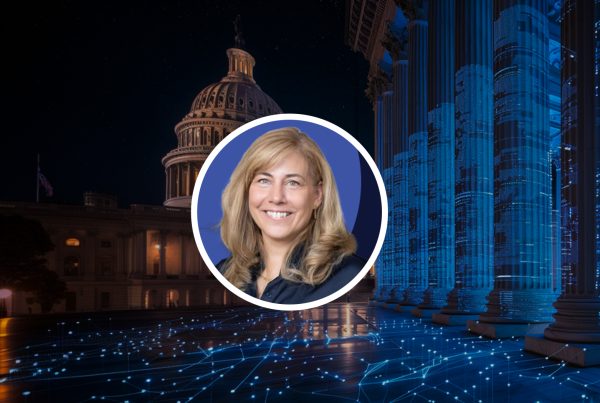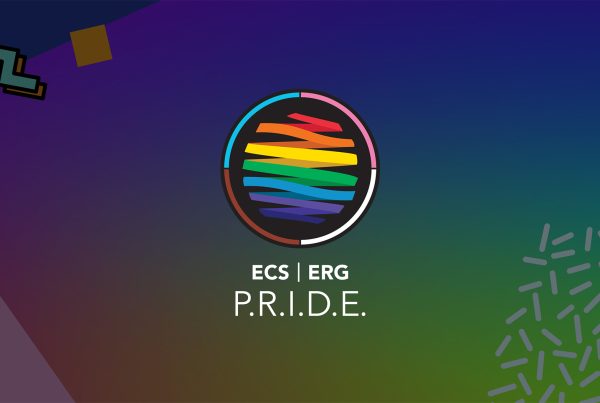Listen to this article:
Major Confusion and a Love of Computers
“I screwed up in college,” says Vice President of Justice and Homeland Solutions Elise Walker. “I went to college as a mechanical engineer because I was interested in building things. Then I realized, after a couple years, that mechanical engineering was not for me.”
Elise had been enthralled with all things electronic since childhood. She’d had a kindergarten teacher who let her dismantle old VCRs in class. As a teen, she bought computers at thrift stores and dismantled old cable boxes a friendly cable technician would drop off at her family’s house. “I had no idea what I was doing,” Elise says of those early forays into black boxes full of transformers, resistors, and capacitors. “But it was fun.”



By the time Elise entered college, she’d been living and breathing computers as a personal interest for years, and she found her first computer science classes unchallenging. She felt she wouldn’t learn enough as a computer science major to warrant the investment of her educational funds and chose mechanical engineering instead.
Eventually, she left the mechanical engineering track for geography studies, which she found fascinating. Geography had a blend of math and culture Elise liked and included a geospatial information systems component that tapped into her background with computers.
Tech Industry Unicorns
Over the course of her technology career, Elise has held various positions, including software analyst, solutions architect, and director of engineering. Since joining the ECS ranks with the 2019 acquisition of Blackstone Federal, she has filled the roles of senior director of engineering and now vice president of solutions.
Elise stays focused on meeting the most urgent needs of our Justice and Homeland Solutions business unit. This can mean preparing to pursue a new opportunity, leading improvements for an existing program, or helping a team step up to a particularly thorny challenge.
“My job is always evolving,” says Elise, who also devotes a lot of time to recruiting and growth. She says the hardest part of her job is finding people with the will to become great solution leaders, so the business can continue to scale.
“The word ‘unicorns’ is often thrown around in our industry,” she says. “That’s because people who are really good at the technology, really good at communication, and have the enthusiasm and will to become great leaders ― these people are very hard to find.”
On Developing Technology Careers
For those building information technology careers, Elise has two pieces of advice: reach out and follow up. She and other leaders on the Justice and Homeland Solutions team work hard to make themselves available, she explains, and they’re surprised by how few employees take advantage of opportunities to connect, learn, and be mentored.
“We have breakfast with new hires. We do ‘speed dating,’ and generally make ourselves available. But too few take us up on offers to connect and the opportunity behind that.” If people want to grow in their technology careers, says Elise, the best thing they can do is find leaders who are willing to listen to their ideas and suggestions and then keep following up with them to continue improving and growing.
“Nobody’s going to be your advocate if you don’t put in that effort,” she says. “It’s the best thing new employees can do to develop their technology careers.”
Reading Books and Sowing Chaos
For her own career development, Elise learns through doing and learns from those around her with different skillsets. She also reads books. Usually suggested by other leaders in the Justice and Homeland Solutions business unit, these books cover topics such as sales, technology, organizational change, and leadership.
“I think a willingness to cause chaos is important,” says Elise, on the topic of leadership. “When you bring energy and a desire to make things better, you often introduce chaos. I’m willing to do that and to be the one who’s critical of where we are, the one who always wants to improve. If things aren’t going well, I’m not satisfied. And if things are going well, I’m still not happy to sit on my hands.”
When Elise sees that same drive for continuous improvement in others, she sees leadership potential. Good leaders, she says, “are uncomfortable putting the work down, calling it good, and walking away.”








